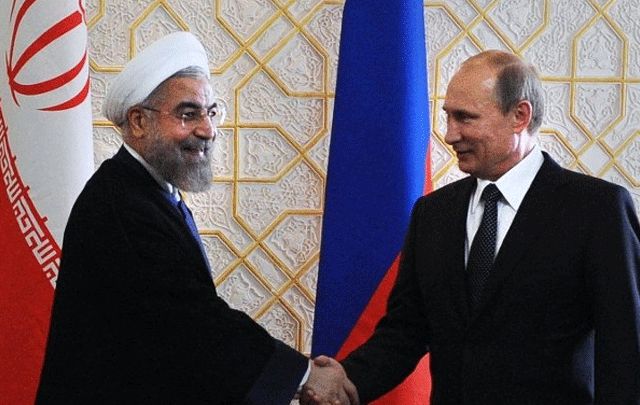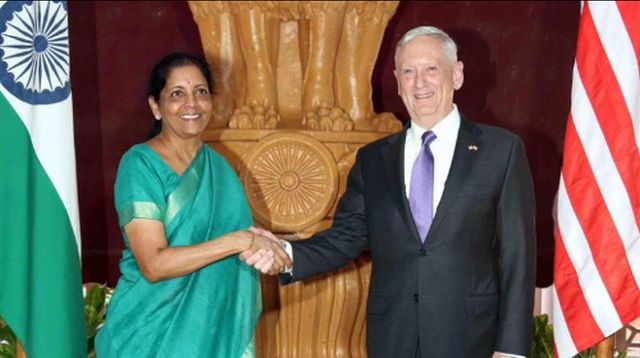
by admin | May 25, 2021 | Markets, Networking, Online Marketing, Social Media, Technology, World
 San Francisco : After suspending 284 accounts originating in Iran and Russia, Twitter on Tuesday announced it has cracked down on additional 486 such accounts that were designed to mislead people in the Middle East, Latin America, Britain and the US.
San Francisco : After suspending 284 accounts originating in Iran and Russia, Twitter on Tuesday announced it has cracked down on additional 486 such accounts that were designed to mislead people in the Middle East, Latin America, Britain and the US.
“Since our initial suspensions last week, we have continued our investigation, further building our understanding of these networks.
“In addition, we have suspended an additional 486 accounts for violating the policies outlined last week. This brings the total to 770,” Twitter said in a statement.
Fewer than 100 of the 770 suspended accounts claimed to be located in the US and many of these were sharing divisive social commentary.
“On average, these 100 Tweeted 867 times, were followed by 1,268 accounts, and were less than a year old,” said Twitter Safety in a tweet.
Last week, Facebook and Twitter removed hundreds of accounts that were originated in Iran and Russia.
Facebook removed 652 pages, groups and accounts for “coordinated inauthentic behaviour”.
Facebook acted on these accounts after FireEye, a global cybersecurity firm, gave it information in July about “Liberty Front Press”, a network of Facebook Pages as well as accounts on other online services.
Based on FireEye’s tip, Facebook started an investigation into “Liberty Front Press” and identified additional accounts and Pages from their network.
“We are able to link this network to Iranian state media through publicly available website registration information, as well as the use of related IP addresses and Facebook Pages sharing the same admins,” Facebook informed.
Twitter suspended more than 70 million fake accounts in May and June in a massive drive to clear out bots and trolls on the platform.
Facebook recently deleted 32 Pages and accounts attempting to influence the US mid-term elections.
—IANS

by admin | May 25, 2021 | Business, Corporate, Corporate Governance, Economy, Markets, News, Politics
 By Mohammed Ahmedullah,
By Mohammed Ahmedullah,
Moscow : Russia is currently executing $4 billion worth of defence contracts with India and is in the process of negotiating sales of military equipment costing a further $11 billion.
Contracts under negotiation include the S-400 air defence system, an order for 48 Mi-17 helicopters and the joint production of KA-226T helicopters, besides Project 11356 frigates, A.A. Mikheev, General Director of Russian Arms exporter, Rosoboronexport, told a select group of journalists in Moscow on Friday.
Referring to sanctions imposed by the US against Russian arms manufacturers and its impact on Indo-Russian arms trade, Mikheev, who was addressing the journalists together with D.A. Shugaev, Director, Federal Service for Military-Technical Cooperation (FSMTC), said: “Sanctions pressure is being gradually built on us. Every day we wake up some new sanctions being imposed.”
He said a recent waiver given to India from secondary sanctions was conditional to shrinking its arms trade with Russia.
However, given the scale of current and future projects, it is unlikely that Russian arms sales to India would ever shrink. On the contrary, they are poised to grow even further owing to Russia participating in a number of procurement tenders of the Indian Ministry of Defence.
Responding to a journalist’s question, Mikheev admitted that US sanctions on Russia had affected the mode of payments for defence equipment by New Delhi to Moscow. Both countries were working on ways to neutralise the effect of sanctions and that resorting to Rupee-Ruble payments was one of the options being considered.
He said the contract to purchase the S-400 air defence system was expected to be signed before the end of the current year. He denied Russia was putting pressure on India to sign the contract and that all negotiations had been concluded, with only the contract signing awaited.
The S-400 would not only protect India from incoming missiles and aircraft but could be integrated with short-range air-defence systems such as the Buk-M4 and Tor to provide protection against lower-level threats such as UAVs and low-flying aircraft.
Mikheev said Russia was keen to increase participation in the “Make in India” programme and would welcome proposals from Indian public and private companies for joint production of military equipment.
(Mohammed Ahmedullah is Editor, www.defenseworld.net. He can be reached at editor@defenseworld.net)
—IANS

by admin | May 25, 2021 | World
 Moscow : Moscow is determined to take all necessary measures to preserve and implement the Joint Comprehensive Plan of Action (JCPOA), also known as the Iran nuclear deal, the Russian Foreign Ministry said Friday.
Moscow : Moscow is determined to take all necessary measures to preserve and implement the Joint Comprehensive Plan of Action (JCPOA), also known as the Iran nuclear deal, the Russian Foreign Ministry said Friday.
“Russia continues to consistently implement its commitments under the JCPOA… We reiterate our decisive commitment to take all the necessary measures to preserve and fully implement the JCPOA,” a ministry statement said, Xinhua reported.
It said that Russia’s Rosatom State Nuclear Energy Corporation is implementing a series of projects designed to ensure the compliance with requirements of the JCPOA.
While noting that Russia is preparing to return a second batch of high-enriched uranium to Iran, the ministry stressed that Moscow would assist Tehran in managing the surplus low-enriched uranium and carry out cooperation with the country in specific areas for the peaceful use of atomic energy.
All such cooperation is being carried out strictly in accordance with the JCPOA terms and UN Security Council Resolution 2231 under full supervision of the International Atomic Energy Agency (IAEA), the ministry said.
The JCPOA was signed in 2015 between Iran and the P5+1 — Russia, France, China, Britain, the United States, plus Germany.
In May, US President Donald Trump announced Washington’s withdrawal from the landmark Iranian nuclear deal. Since then, the Trump administration has slapped a number of sanctions on Iran while vowing to apply more.
—IANS

by admin | May 25, 2021 | Business Summit, Events, Social Round-up, World
 Seoul : Russian President Vladimir Putin on Wednesday invited North Korean leader Kim Jong-un for a summit to discuss urgent issues, the media reported.
Seoul : Russian President Vladimir Putin on Wednesday invited North Korean leader Kim Jong-un for a summit to discuss urgent issues, the media reported.
Putin expressed his readiness to hold a summit with Kim at an “early date” in a message sent on the occasion of North Korea’s liberation, coinciding with the 73rd anniversary of Japan’s surrender in World War II, North Korea’s state news agency KCNA reported.
“I affirm that I am ready to meet you at an early date to discuss urgent issues of bilateral relations and important matters of the region,” Putin said.
Earlier in May, the Russian President invited Kim to the Eastern Economic Forum in the Russian coastal city of Vladivostok between September 11 and 13, but Pyongyang was yet to respond.
Putin also invited his South Korean counterpart Moon Jae-in, Chinese counterpart Xi Jinping and Japanese Prime Minister Shinzo Abe to the forum.
If Kim and other leaders decided to attend, it would be an unprecedented international gathering in which leaders from five of the six countries that have been working on nuclear disarmament meet.
—IANS

by admin | May 25, 2021 | Corporate, Corporate Governance, News, Politics, World
 Washington : The US Senate has passed a bill that gives India a partial waiver relief from sanctions against Russian firms and oligarchs, allowing it to keep buying Russia-made weapons in a landmark decision that is seen as a big diplomatic win for New Delhi.
Washington : The US Senate has passed a bill that gives India a partial waiver relief from sanctions against Russian firms and oligarchs, allowing it to keep buying Russia-made weapons in a landmark decision that is seen as a big diplomatic win for New Delhi.
The defence spending bill, which now goes to President Donald Trump before it becomes a law, also seeks to “strengthen and enhance” defence partnership with India. It was passed by the House last week.
The National Defence Authorization Act was passed on Wednesday with overwhelmingly bipartisan support – a vote of 87-10 in the Senate and 359-54 in the House.
The bill authorizes a $717 billion US defence budget to rebuild its military and “strengthens our alliances and partnerships and reforms the way we do business”, Secretary of Defence James Mattis said in a statement.
He said the bill “provides waiver relief to key US partners and allies from certain Russian-related sanctions under the Countering America’s Adversaries through Sanctions Act” (CAATSA).
The CAATSA amendment allows countries like India to continue buying military equipment from Russia provided they fulfill certain conditions, like reducing defence purchases from Russia.
The law, which came into effect in 2018, sanctions some Russia firms, including state-run military hardware makers, and some businessmen, for alleged meddling in the 2016 US Presidential elections.
The act also forbade third-party countries from doing “significant transactions” with Russia in military and intelligence sectors through the threat of secondary sanctions.
Now the modified version of the act requires presidential certifications allowing key US allies to trade with Russia.
“I am grateful for the strong commitment of members on both sides of the aisle to pass this year’s NDAA in record time. Together, they have demonstrated the deep and abiding bipartisan support our military enjoys,” Mattis said.
“It is now our duty to implement these policies responsibly and ensure a culture of performance and accountability.”
Among the first in the line of fire of anti-Russia sanctions was India, which is all set to buy five Russian-made S-400 Triumf advanced air defence systems.
An agreement for the deal is expected to be signed when Prime Minister Narendra Modi visits Moscow later this year.
Significantly, the bill also proposes to “strengthen and enhance” America’s major defence partnership with India and “work toward mutual security objectives”.
It talks about the strategic Quadrilateral Dialogue between the US, India, Japan, and Australia for “expanding engagement in multilateral frameworks”.
Also known as the Quad, the grouping first established in 2007-08, was revived last year amid China’s assertive maritime strategy expansion, land reclamation and territorial claims in and around the South China Sea.
Concerns about Chinese increasing military activities and its Maritime Silk Road Initiative (MSRI) have triggered fears in India about encroachment of its strategic interest as well as encirclement of its maritime zone by Chinese projects in Pakistan and Sri Lanka.
The expansion of engagement in multilateral frameworks, the bill said, would be done to “promote regional security and defend shared values and common interests in the rules-based order”.
Besides, additional steps would be explored “to implement the ‘major defence partner’ designation to better facilitate military inter-operability, information sharing, and appropriate technology transfers” with India.
The bill also proposed to designate a “responsible individual within the Department of Defence to facilitate the major defence partnership with India” and pursue strategic initiatives to help develop India’s defence capabilities, including maritime security capabilities.
It also suggests conducting additional joint exercises between Indian and US militaries in the Persian Gulf, the Indian Ocean region, and the Western Pacific and furthering cooperative efforts to promote security and stability in Afghanistan.
—IANS

 San Francisco : After suspending 284 accounts originating in Iran and Russia, Twitter on Tuesday announced it has cracked down on additional 486 such accounts that were designed to mislead people in the Middle East, Latin America, Britain and the US.
San Francisco : After suspending 284 accounts originating in Iran and Russia, Twitter on Tuesday announced it has cracked down on additional 486 such accounts that were designed to mislead people in the Middle East, Latin America, Britain and the US.



